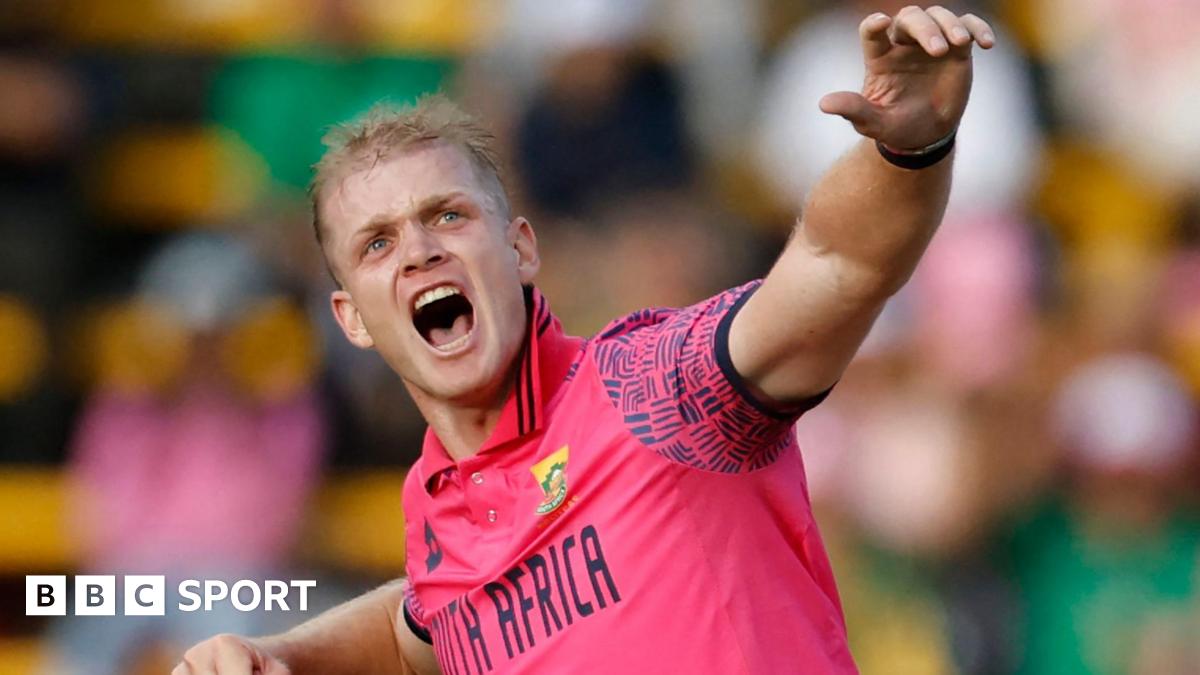The tragedy that changed cricket forever

CHRISTCHURCH — It is 10 years since the death of Phillip Hughes, a tragedy that shattered cricket’s innocence but sparked reforms that have made the sport safer than it’s ever been.
Nothing could have prevented what happened to Hughes. The inquest into his death concluded that. Nobody was to blame. It was a tragic accident.
Hughes was struck on the side of the neck by a short ball while batting for South Australia against New South Wales in a Sheffield Shield match at the Sydney Cricket Ground on 25 November 2014. He died from a brain haemorrhage two days later. He was 25.
His legacy is the raft of safety measures introduced to the sport over the past decade. Those include the stringent concussion protocols that are now mandatory across the world whenever a batter is hit on the helmet.
Decisions on whether a player can continue are now solely down to team medics. The checks are thorough and standardised. They are a welcome addition, no doubt.
As are concussion substitutes, introduced in 2019 and first used in Test cricket that year when Marnus Labuschagne replaced Steve Smith in an Ashes Test match at Lord’s following a blow to the neck from a Jofra Archer delivery that brought memories of what had happened to Hughes flooding back.
Thankfully Smith was okay and after being forced to sit out the remainder of that Lord’s Test and the next at Headingley, he resumed his career and cricket moved on.
Other safety measures that are a direct legacy of Hughes’ death include the mandatory requirement to wear a helmet in professional cricket for all batters facing seam bowling, wicketkeepers standing up to the stumps and close fielders, such as those stationed at short leg.
The England & Wales Cricket Board, who have gone even further by requiring players to wear helmets against all types of bowling, made these requirements mandatory in 2015. Cricket Australia followed four years later and the International Cricket Council in 2023, meaning this now applies to all professional players worldwide.
And every helmet – whether it is being worn in Bulawayo or Birmingham – must comply with the British Standard.
Stem guards that clip to the back of the helmet to protect the neck were made compulsory in county cricket in 2022. Cricket Australia followed in 2023 but these are not yet mandatory across the world.
Other safety protocols that have become standard since 2014 include pre-match medical meetings for all international matches so that everyone, especially team doctors, are aware, among other things, of the location of medical rooms, ambulance entry points, and where paramedics are positioned pitch side.
Alex Kountouris, Cricket Australia’s head of sports science and medicine, said this week: “We had a doctor there [at the SCG in 2014], we had a medicine doctor there in the crowd at the time. We had all the equipment.
“But it was just more of an awakening. We never considered something this significant being possible. Our challenge is to make sure the next group of players who weren’t involved aren’t blasé about it – that they are aware serious injury can happen, and that is why it is important to wear protective equipment. We’re trying to have a legacy for him. It’s definitely made the game safer.”
There’s also been much discussion about the future of the bouncer since 2014, with the MCC, guardian of the laws of cricket, conducting an 18-month review that concluded that short-pitched bowling should not be banned from any level of the sport.
It was decided that to outlaw the bouncer would “materially change the game” and skew the balance between bat and ball too much against bowlers.
Safety equipment and protocols have improved dramatically over the past 10 years. On a practical level Hughes’ death changed the game. But it also had a profound emotional impact.

For Brendon McCullum, it was lasting. Currently England’s coach, a decade ago he was captaining New Zealand in a Test match against Pakistan at Sharjah. News of Hughes’ death filtered through 90 minutes before the start of the second day. Play was abandoned for the day.
New Zealand’s players were inconsolable. They realised the outcome of the game was meaningless in the wider context of what had happened. It transformed their approach as they went at five an over to pile up 690 in a match they won by an innings.
Speaking this week, McCullum said: “It definitely changed the way I looked at cricket. The impact it had on our team was it took away the angst of trying to get results, it became about playing with mates, looking out for each other, and it unlocked a lot of our skills to perform as well as we did. Guys played with immense freedom. It was a lesson in removing pressure, being present, playing with mates. It was a big thing for me personally, it changed how I viewed cricket. But obviously that’s nothing in the context of what Phil’s family were going through.
“The game was never life or death, it was about toughness, you get hit and carry on. But it made you think about your team-mates, that it could have been any of us. I knew Phil, not great mates but I knew him. But we had guys in the team who were and it had a massive effect on them.”
The tragedy also had a deep impact on Mitchell Johnson, Hughes’ former Australia team-mate whose aggressive bowling had ripped through England in the 2013-14 Ashes series.
“It definitely affected players around the world and I think it changed the game a little bit for a while there,” Johnson said after retirement in 2015. “I had that Ashes series [2013-14] where I was really aggressive and bowling a lot of short balls and I did hit players. It made me think, was I doing the right thing? You know, was I playing in the spirit of the game?”
Ben Stokes spoke eloquently about Hughes in the build-up to this week’s opening Test against New Zealand in Christchurch.
“It was an incredibly sad moment for cricket,” said England’s captain. “You never thought something like that would happen out in the field. I didn’t know Phil Hughes particularly well but when that happens to a fellow professional, you can’t help but feel sad for his family, for his team-mates, for anyone who knew him, and also for Sean Abbott as well. You know, it would have been horrific for him as well. I don’t think he got lost in that incident. It’s such a sad thing to think about – someone out on the field doing what they love losing their life.
“It might give you a bit more of an understanding as to why we speak the way we do. You know, there’s bigger things than results. When you think of it like that – a lot worse could happen than losing a game of cricket.”
It was typical of Stokes to show support for Abbott, the bowler who delivered the fatal ball. In Australia, Abbott’s name has almost been airbrushed from the story. It comes from a good place. After all, what happened was traumatising for a bowler who was just 22 at the time. Australia’s cricket community wants to protect him.
Yet to ignore Abbott does an injustice to the impressive way he has come through that trauma to carve out a fine career.
A visibly shaken Abbott was consoled by team-mates on Wednesday following a minute’s silence to mark the 10th anniversary of Hughes’ death before the fourth day of New South Wales’ Sheffield Shield match against Tasmania at the SCG. The tragedy will live with him forever.
It is probably apt now to recall the words of former England bowler Stuart Broad, who just weeks after Hughes’ death in 2014, said: “My heart goes out to Sean Abbott. There’s nothing he could have done and so he should not feel any guilt. Everyone knows he didn’t mean it because a bouncer is part of every bowler’s armoury. He needs to know everyone in the game is thinking of him. It could have happened to any bowler in the world.”
It could also have happened to any batter in the world. That’s why this tragedy is still so shocking even 10 years on. Hughes will never be forgotten nor will the legacy he has bestowed upon the sport he loved so much.
Related
‘Listen from one ear, ignore from the other’: Former India…
India's Rohit Sharma and Mohammed Shami (AP Photo) NEW DELHI: Former wicketkeeper-batter Syed Kirmani has expressed his opinion that experienced fast bowler Mo
India faces New Zealand in budding rivalry at Champions Trophy…
State AlabamaAlaskaArizonaArkansasCa
ICC and Unilever announce landmark partnership on International Women’s Day…
The two-year partnership, kicking off at this year’s Women’s Cricket World Cup in India and running until the end of 2027, marks the world cricket governing
IPL 2025: Mumbai Indians sign Corbin Bosch as replacement for…
Mumbai Indians have signed South Africa all-rounder Corbin Bosch as a replacement for his injured countryman Lizaad Williams for this year's Indian Premier Leag












